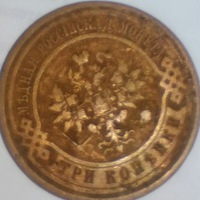
На полке 8 книг. Книг по математике в 3 раза больше, чем книг по физике. Наугад взяли 3 книги.
Найти вероятность того, что : a) все взятые книги по математике б) 2 книги по физике и 1 по математике 0
0
 0
0
Ответы на вопрос
 Внимание! Ответы на вопросы дают живые люди. Они могут содержать ошибочную информацию, заблуждения, а также ответы могут быть сгенерированы нейросетями. Будьте внимательны. Если вы уверены, что ответ неверный, нажмите кнопку "Пожаловаться" под ответом.
Внимание! Ответы на вопросы дают живые люди. Они могут содержать ошибочную информацию, заблуждения, а также ответы могут быть сгенерированы нейросетями. Будьте внимательны. Если вы уверены, что ответ неверный, нажмите кнопку "Пожаловаться" под ответом.

Допустим книг по физике X количество, тогда количество книг по математике 3Х. Всего их 8. Составляем уравнение:
3Х + X=8
4Х=8
X=2
Отсюда книг по физике 2, а по математике 3*2=6.
Вероятность того, что возьмут книгу по математике= 6/8 = 0,75
Вероятность того, что возьмут книгу по физике= 1 - 0,75 = 0,25
Вероятность того, что возьмут три книги по математике= 0,75*0,75*0,75= 0,421875
Вероятность того, что возьмут две книги по физике и одну книгу по математике= 0,25*0,25*0,75= 0,046875
 0
0
 0
0

Ответ: см фото.
Пошаговое объяснение:

 0
0
 0
0

Problem Analysis
We are given that there are 8 books on a shelf, with the number of math books being 3 times the number of physics books. We need to find the probability of selecting certain combinations of books.Solution
Let's start by finding the number of math and physics books on the shelf.Let's assume the number of physics books is x. Then the number of math books would be 3x.
We are asked to find the probability of selecting 3 books from the shelf. We'll consider two cases:
Case a) All selected books are math books:
In this case, we need to select all 3 books from the math books. The number of ways to select 3 books from a set of 3x books is given by the combination formula:
C(3x, 3)
Case b) 2 selected books are physics books and 1 selected book is a math book:
In this case, we need to select 2 books from the physics books and 1 book from the math books. The number of ways to select 2 books from a set of x books is given by the combination formula:
C(x, 2)
The number of ways to select 1 book from a set of 3x books is given by the combination formula:
C(3x, 1)
To find the probability, we need to divide the number of favorable outcomes by the total number of possible outcomes.
The total number of possible outcomes is the number of ways to select 3 books from a set of 8 books, which is given by the combination formula:
C(8, 3)
Let's calculate the probabilities for both cases.
Calculation
Case a) All selected books are math books:Number of favorable outcomes = C(3x, 3)
Total number of possible outcomes = C(8, 3)
Case b) 2 selected books are physics books and 1 selected book is a math book:
Number of favorable outcomes = C(x, 2) * C(3x, 1)
Total number of possible outcomes = C(8, 3)
Substituting Values
We know that the number of math books is 3 times the number of physics books. Let's substitute this value into the equations.Case a) All selected books are math books:
Number of favorable outcomes = C(3x, 3) = C(3(3x), 3) = C(9x, 3)
Total number of possible outcomes = C(8, 3)
Case b) 2 selected books are physics books and 1 selected book is a math book:
Number of favorable outcomes = C(x, 2) * C(3x, 1) = C(x, 2) * C(3x, 1) = C(x, 2) * C(3x, 1)
Total number of possible outcomes = C(8, 3)
Simplifying the Equations
We can simplify the equations further by substituting the values of the combination formula:Case a) All selected books are math books:
Number of favorable outcomes = C(9x, 3) = (9x!)/(3!(9x-3)!)
Total number of possible outcomes = C(8, 3) = (8!)/(3!(8-3)!)
Case b) 2 selected books are physics books and 1 selected book is a math book:
Number of favorable outcomes = C(x, 2) * C(3x, 1) = (x!)/(2!(x-2)!) * (3x!)/(1!(3x-1)!)
Total number of possible outcomes = C(8, 3) = (8!)/(3!(8-3)!)
Calculating the Probabilities
Now, let's calculate the probabilities for both cases.Case a) All selected books are math books:
Probability = (Number of favorable outcomes)/(Total number of possible outcomes) = [(9x!)/(3!(9x-3)!)] / [(8!)/(3!(8-3)!)]
Case b) 2 selected books are physics books and 1 selected book is a math book:
Probability = (Number of favorable outcomes)/(Total number of possible outcomes) = [(x!)/(2!(x-2)!) * (3x!)/(1!(3x-1)!)] / [(8!)/(3!(8-3)!)]
Let's simplify the equations further and calculate the probabilities.
 0
0
 0
0
Похожие вопросы
Топ вопросов за вчера в категории Математика
Последние заданные вопросы в категории Математика
-
Математика
-
Литература
-
Алгебра
-
Русский язык
-
Геометрия
-
Английский язык
-
Химия
-
Физика
-
Биология
-
Другие предметы
-
История
-
Обществознание
-
Окружающий мир
-
География
-
Українська мова
-
Информатика
-
Українська література
-
Қазақ тiлi
-
Экономика
-
Музыка
-
Право
-
Беларуская мова
-
Французский язык
-
Немецкий язык
-
МХК
-
ОБЖ
-
Психология
-
Физкультура и спорт
-
Астрономия
-
Кыргыз тили
-
Оʻzbek tili

























